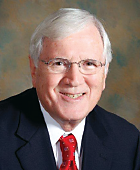Psychiatrists over age 65 vary significantly in their activity or work status. Issues that may have an impact on their well-being vary according to whether they are active with full- or part-time work, winding down clinical practice, or retired.
According to data from the AMA, the number of physicians aged 65 and above in 2013 is now 241,641, or 23 percent of all U.S. physicians. Two-fifths of these are actively engaged in patient care. According to APA data as of January 2016, 30 percent of members are over age 65.
Although senior physicians are needed in the workforce, there are no allowances for age when it comes to the care of our patients and their safety. The stress, work overload, or burnout that affect nearly half of physicians do not spare senior psychiatrists. Moreover, senior psychiatrists must remain current with advancing medical knowledge, regulatory requirements, computer literacy, reimbursement problems, and increasing patient demand.
One well-established tool for countering the isolation that can lead to burnout and stress—and that can be a risk associated with aging—is networking and building community with colleagues. Senior Psychiatrists Inc., founded in 2012, is an outgrowth of the APA “Lifers.” Prior to 2012, the Lifers were staffed by the APA Foundation. Today, Senior Psychiatrists Inc. is one of APA’s “allied organizations” and has representation in the APA Assembly. Membership in Senior Psychiatrists Inc. is open to any member of APA who is a life member, life fellow, or life distinguished fellow. The group works collaboratively with APA to meet the special needs of older members and offers mentoring to resident-fellow members and early career psychiatrists.
Many senior physicians practice safely and effectively into their eighth decade, and some attributes of aging—wisdom, resilience, compassion, and tolerance for stress—can positively enhance our clinical work. Yet there is a pivotal point at which advancing age and diminishing competence (or at least diminishing physical endurance) intersect. Our professional responsibilities require us to ensure safe and effective care of our patients.
Aging physicians need to be able to monitor for themselves when they are approaching that pivotal point. Self-assessment with evaluation of one’s current medical knowledge and emotional temperament is important. Applying best practices for self-care is important and includes attention to one’s health care needs, stress reduction, adequate sleep, moderation of alcohol, regular exercise and time for family, social activities, and other interests. Keeping business, family, finances, and personal interests in balance allows one to maintain the joy of medical practice.
Pre-retirement planning should begin early, with consideration given to promote physical and emotional well-being. Issues including finances, relationships, health, personal interests, and identity are best dealt with in this stage.
Deciding when to reduce or give up practice is an important decision and may be emotionally charged. It is best to plan how to lessen work and responsibilities and plan for unexpected illness or accidents that would preclude medical practice. Considerations as to how to reduce the stress of practice may include narrowing or limiting scope of practice, patient selection, reduced work hours, finding ways of improving functionality of the electronic medical record, and accepting ways to self-assess knowledge and competency.
Retirement brings on the need to reshape one’s identity, relationships, and purpose in life. Personal issues call for taking stock of how one’s sense of identity might change with age, how relationships and support systems will be affected, and how one’s sense of purpose may evolve with time.
If planned, retirement should come easy and be successful. There is no right or one way to retire. Retirement can be a time of enormous change that is either well managed and happy per one’s plans or dreaded because of the unresolved issues involved. Many find delight in new activities with family or social events. Some find pleasure in volunteering, teaching, or developing other interests and spiritual resources.
After retirement, we will want to apply the same strategies for successful aging that we often recommend to our patients—physical activity, cognitive stimulation, social engagement, relaxation strategies, and the rediscovery or reformulation of a purpose in life.
George Vaillant, M.D., in his book Aging Well, asked the question: “There is more life after work, but how to use this time well?” He summarized the answer this way: “Aging well is giving to others. It is accepting our limitations with humor and dignity. It is cultivating the sparks of interest into our eternal flame.” ■
More information about Senior Psychiatrists Inc. can be accessed
here.



